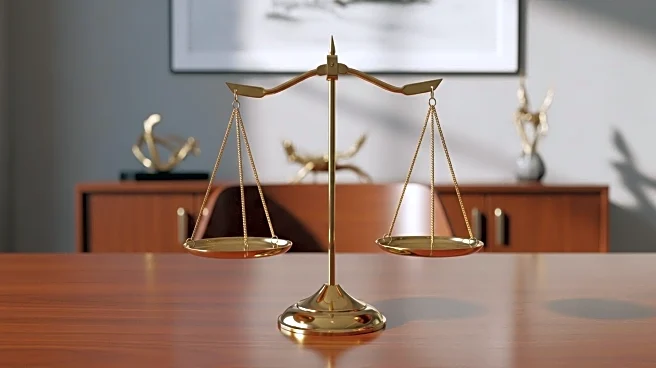What is the story about?
What's Happening?
President Trump has proposed a significant overhaul of the H-1B visa program by introducing a $100,000 annual fee for each visa. This fee represents a substantial increase from the current few thousand dollars and is intended to curb what the administration describes as 'abuses' of the program. The fee would be paid by employers for each H-1B visa petition, potentially affecting the entry of skilled foreign workers into the U.S. The administration argues that the fee will protect American jobs by discouraging companies from hiring foreign workers at lower wages. However, the tech industry, which heavily relies on H-1B visas, has expressed alarm, warning that the fee could drive away top talent and slow innovation. Legal experts have also questioned the legality of imposing such a fee without congressional approval, predicting potential court challenges.
Why It's Important?
The proposed fee could have significant implications for the U.S. tech industry, which depends on H-1B visas to fill specialized roles. By making it more expensive to hire foreign talent, the policy could lead to a talent drain, with companies potentially offshoring operations to avoid the fee. This could slow down innovation and economic growth in the U.S. Additionally, the fee may disproportionately affect smaller companies and startups that cannot afford the increased costs, potentially stifling entrepreneurship and job creation. The proposal also raises legal questions about the executive branch's authority to impose such a fee, which could lead to prolonged legal battles and uncertainty for businesses and workers.
What's Next?
If implemented, the fee could lead to immediate legal challenges from companies and immigration advocates, questioning the executive authority to impose such a charge. The tech industry may also lobby for legislative intervention to prevent the fee from taking effect. Meanwhile, companies might accelerate efforts to establish operations in countries with more favorable immigration policies, such as Canada, which has been actively courting skilled workers. The outcome of these legal and political battles will significantly impact the future of the H-1B program and the U.S. position in the global talent market.
Beyond the Headlines
The proposal is part of a broader immigration agenda by President Trump, which includes measures to restrict both legal and illegal immigration. This approach aligns with his 'America First' policy, aiming to prioritize American workers but also raising concerns about the U.S.'s openness to global talent. The fee could also exacerbate existing tensions between the administration and the tech industry, which has traditionally supported more open immigration policies. The long-term effects on U.S. competitiveness and innovation remain uncertain, as the country risks losing its edge in attracting the world's best and brightest minds.















